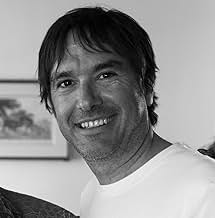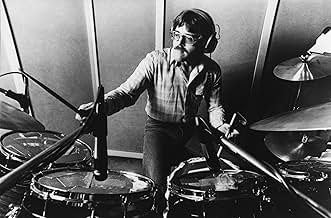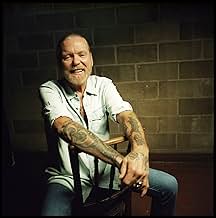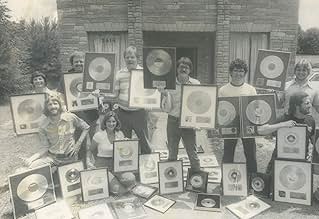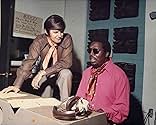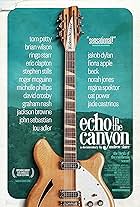A documentary that celebrates Rick Hall, the founder of FAME Studios in Muscle Shoals, Alabama, and the signature sound he developed in songs such as "I'll Take You There", "Brown Sugar", an... Read allA documentary that celebrates Rick Hall, the founder of FAME Studios in Muscle Shoals, Alabama, and the signature sound he developed in songs such as "I'll Take You There", "Brown Sugar", and "When a Man Loves a Woman".A documentary that celebrates Rick Hall, the founder of FAME Studios in Muscle Shoals, Alabama, and the signature sound he developed in songs such as "I'll Take You There", "Brown Sugar", and "When a Man Loves a Woman".
- Awards
- 3 wins & 11 nominations total
Featured reviews
In the interest of full disclosure, these are my people ya'll! I grew up just east of Muscle Shoals, also on the banks of the Tennessee River – "The Singing River" to the Native Americans who made their home there for millenia before Rick Hall founded FAME studios. Driven by a need to escape the crushing poverty and overwhelming tragedy that befalls him, Hall is the central figure in the story of the famed "Muscle Shoals sound" – well him and a group of homegrown, white as cotton studio musicians known as the "Swampers". These men shaped what ultimately proved to be some of the finest rock, soul, and R&B America would ever produce.
Music docs can really go either way, depending on such bureaucratic mundanities as rights and clearances. Muscle Shoals is a triumph, though. All personal bias aside, present day interviews with music luminaries, expertly deployed found footage and stills, and the greatest soundtrack a movie could hope for, all make Muscle Shoals one of the finest music documentaries you'll ever see. Let the participation of such bright lights as Aretha Franklin, Wilson Pickett, Mick Jagger, Keith Richards, Bono, Jerry Wexler, Percy Sledge, Alicia Keys, Gregg Allman, Clarence Carter, and Etta James serve as a testament to the enduring magic that is Muscle Shoals, FAME studios, and that greasy, soulful sound. The only puzzling thing about Muscle Shoals is how this story went so long without being told.
Unfortunately, I think the musicians interviewed couldn't really explain what it was that made Muscle Shoals so special from a technical perspective. Bono, as always, was quite articulate, but he didn't offer anything technical. He instead talked philosophically about the power of the Tennessee River just as the Mississippi influenced the Blues. Most of the other musicians fell back on platitudes and clichés about funky white guys. Keith Richards was beyond hopeless as an interviewee. He seemed like he was doing a really bad Saturday Night Live impersonation of himself.
Don't get me wrong. The stories were entertaining. I particularly liked Greg Allman's story about how his brother Duane learned to play the slide guitar and Wilson Picket's story about the first time he came to Muscle Shoals. I also thought the documentary did a good job telling the history of the original FAME studio as well as the second studio started by the so-called "Swampers".
Nevertheless, I think at least one interview segment with a Rock historian or a musicologist to put everything in context and offer technical explanations would have been a great addition.
Finally, although it's clear that the Muscle Shoals musicians were far ahead of their fellow southerners on the issue of race, and the film rightly showcased this, it also showed clips of Lynyrd Skynyrd in concert proudly displaying a confederate flag. Displaying a confederate flag in 2013 is beyond bad taste. It's simply unacceptable.
There was some tragedy in the story, and some element of conflict (such as when the studio players split from FAME studios and formed their own Muscle Shoals Sound Studio) but wisely the film concentrates on the music and the inspiring story of Rick Hall's rags-to-riches success and his work ethic, attitudes and musical philosophy.
If there's any weakness, it's some of the interviewees who trot out some fairly predictable platitudes: among them the tired/borderline racist "how could all that music be played by white guys!?" 'Cos, you know, white people have no soul or rhythm.
Ultimately, I was left wanting to know more, which is a good sign, although I think the film could have tried to get a bit more under the skin of what were the specific elements that resulted in this music coming out of this city, instead of pursuing a vague spiritual narrative of there just being "something in the water". Yes, there had to be some magic, and as romantic/poetic as that is, more robust information about the business side of just how Rick set up the studio, sold his first recordings etc. would have been great.
All in all a great documentary. Any music fan should enjoy this, but of course you don't need to be a music fan because at it's heart it's a fairy tale of achieving one's dreams through hard work, determination and a little bit of sacrifice.
Storyline
Did you know
- TriviaWinner of the Grand Prize, Boulder International Film Festival, 2013.
- Quotes
David Hood: When Duane came here, he was on the Wilson Pickett session that we did.
Jimmy Johnson: There was always a slight problem when we would go out, all of us white boys with a black artist, that we'd get looks, okay? But there was nothing as bad as going out with a long-haired hippie with us white boys. They couldn't stand that, right? And so both of them stayed back.
Gregg Allman: So, they went on lunch break and my brother went up to Wilson and he said, uh, "Man, why don't you cut 'Hey Jude', you know, that Beatles song?"
Wilson Pickett: And at that point, I was mostly trying to create an original career Wilson Pickett, right? My songs.
Rick Hall: Pickett and I, in unison, both said "Look, are you crazy? We're gonna cover the Beatles?" And, of course, Duane said "Exactly."
Jimmy Johnson: While we were gone, Duane changed our whole session. When you get to the vamp, it goes into just an unbelievable groove. Duane Allman was playing such great guitar fills that something happened in that vamp. And all of a sudden, there was southern rock. That was the beginnings of the Allman Brother Band.
- Crazy creditsAlthough Steve Winwood is feature prominently, including with on-screen name identification, hie name is NOT listed in the end credits.
- ConnectionsFeatures Gimme Shelter (1970)
- SoundtracksLand of 1,000 Dances
Written by Chris Kenner
Performed by Wilson Pickett
Courtesy of Atlantic Recording Corp/Rhino Entertainment Company
By arrangement with Warner Music Group Film & TV Licensing
- How long is Muscle Shoals?Powered by Alexa
Details
Box office
- Gross US & Canada
- $696,241
- Opening weekend US & Canada
- $13,901
- Sep 29, 2013
- Gross worldwide
- $709,415
- Runtime1 hour 51 minutes
- Color
Contribute to this page



